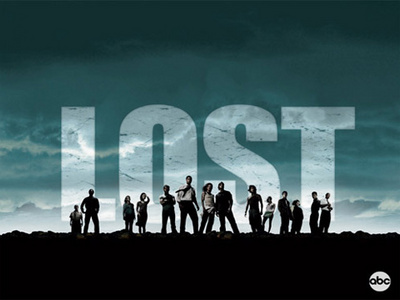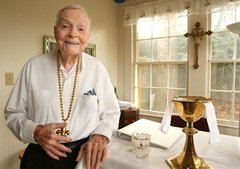 With the groundbreaking, epic series coming to a close tonight, people are picking apart the mythology — and theology — underlying the show:
With the groundbreaking, epic series coming to a close tonight, people are picking apart the mythology — and theology — underlying the show:
“Lost” fans have suggested a variety of theories behind the mysteries of the ABC series since it launched in 2004: alien races, secret government plots, shared dreams, purgatory.
The twisted, confusing and complicated mythology of “Lost” meant every frame and phrase had to be closely scrutinized for clues to the baffling meaning.
All of “Lost’s” secrets might not be revealed in tonight’s finale, but at least enough clues have been revealed this season that fans, experts and even the actors say the show’s storylines have been based in spiritual teachings. The primary message is that no matter what kind of life you have lived – doctor, soldier, scientist, thief – redemption is available to everyone.
The journey to find this salvation, like a modern day version of John Milton’s “Paradise Lost,” has had the flawed survivors of the crash of Oceanic Flight 815 face challenges from polar bears to atomic bombs as tests. And now that the end is here, some have seen the light while others remain in the dark.
Chris Seay, a Houston pastor, has written “The Gospel According To ‘Lost’,” a book that takes an in-depth look at the Biblical references from the show. He suggests it’s the seemingly infinite ideas, philosophies and Biblical metaphors that have made the series popular.
He stresses “Lost” hasn’t been an exact representation of the Bible, but more of a post-modern vision of events in Genesis and Exodus. Seay compares “Lost” to the writings of C.S. Lewis, who adapted Biblical teachings for his “Narnia” stories.
It won’t be clear whether “Lost” has gone by the Good Book or created a story that is a mish-mash of spiritual and philosophical ideas until after the finale. The ending could take a 90-degree turn to one of the many other theories about the show. Even if that happens, spiritual teachings have been a big influence.
“For the writers of ‘Lost,’ the Biblical narrative is a big part of the larger story. It has come into play more than philosophy, science or other religions – such as Hindu – that pop up. It dominates in a way the other themes have not,” Seay says.
Some of the narrative has been as simple as naming characters after those in the Bible, such as Jacob (Mark Pellegrino) and Aaron (played by various children). They’ve also been as complicated as the island being a parallel to the Garden of Eden.
Check out some other ideas at the link.
UPDATE: Amy Welborn has been following “Lost” a lot more closely than I, and offers some thoughts over at her blog.
When the castaways arrived on the island, they were, as Jacob described them, “alone.” They were emotionally-crippled, lost souls without any genuine human connections. But through the love and responsibility they exhibited toward each other, they were able to grow as human beings and fulfill their real natures – to move past the tragedies, mistakes and obsessions that haunted them and eventually arrive in a state of grace. In fact, there was a promo for “Lost” before this final season began that was edited to Willie Nelson singing “Amazing Grace.” For me, the lyrics in that song “I once was lost, but now am found, was blind but now I see” explains the process of what happened in the Sideways/Purgatory world and over the course of the series. Grace builds on nature. As such, the castaways became a means of each others salvation.

